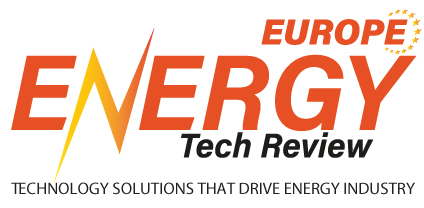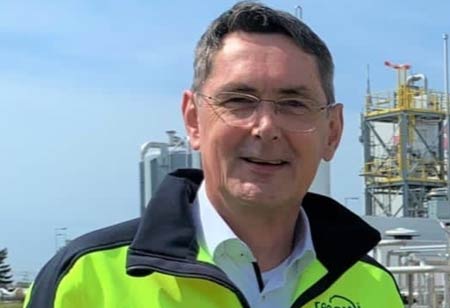Our world is now only 8.6 percent circular. Of all the minerals, fossil fuels, metals, and biomass, just 8.6 percent are cycled back. This has fallen from 9.1 percent in the two years since the Circularity Gap Report was first launched in 2018. By now, I think most people know that clean paper should be sorted in a recycling bin instead of a trash can. Apples cores and leftovers, also known as organic waste, however—that’s a different story. Organics can be harmful to the environment when incinerated or landfilled. Disposing of organic waste the right way is environmentally responsible. But what can be done with organic waste when disposed of correctly?
Transitioning from Waste to Energy
Renewi Organics processes over 65,000 tonnes of organic waste streams into new raw materials on an annual basis. Organic waste is collected from restaurants, the retail sector, and the food processing industry. Their plant in Amsterdam, the Netherlands receives and processes over-date products—products not sold before the sell-by date. During the fermentation process, bio-gas is produced, part of which is transformed into electricity and supplied back to the Amsterdam electricity network. This supplies over 15,000 households with electricity and heat.
The other part is used to produce bio-LNG. Two years ago, the first commercial bio-LNG plant in Europe was opened together with Renewi’s partners Shell and Nordsol. Bio-LNG represents a clean alternative to fossil fuels. It has almost zero particulate matter emissions and generates 80 percent fewer greenhouse gases compared to conventional diesel. The bio-LNG is sold in fuel stations to power heavy-duty trucks and short-haul shipping.
“ Bio-LNG represents a clean alternative to fossil fuels. It has almost zero particulate matter emissions and generates 80 percent fewer greenhouse gases compared to conventional diesel”
This circular innovation promotes greener transportation and reduces reliance on fossil fuels while contributing to a more circular economy. The installation is set to produce 3.4 kilotons of bio-LNG per year. This number is equivalent to about 13 million CO2-neutral kilometers for an average truck.
Organic Waste—a Valuable Resource
Source separation produces the cleanest waste streams and is crucial to allow raw materials to be optimally recycled. By preserving the quality of the waste, we keep raw materials in the cycle. Organic waste is a valuable resource as we make electricity, heat, bio-LNG, and compost. We continue to innovate continuously. We are investigating the possibility of making bioplastics from organic waste streams for example.
Collaboration is the key to achieving a circular economy. Let's work together to make our world circular by giving new life to used materials.
Understanding Renewi’s Take
Renewi is a pure-play recycling company and has a focus on extracting value from waste and used materials rather than disposal through incineration or landfill. The company also plays a key role in limiting resource scarcity through the creation of secondary materials, and by doing so we address both social and regulatory trends and contribute to creating a cleaner, greener world.
Renewi’s vision is to be the leading waste-to-product company in the world's most advanced circular economies. With an industry-leading recycling rate of 68 percent, Renewi puts 8 million tonnes of low-carbon secondary materials back into reuse. This is a significant contribution to climate change mitigation and the circular economy. Our recycling protects virgin resources and avoids emissions of more than 3 million tonnes of CO2.
Renewi, which draws on innovation and the latest technology to turn waste into useful materials - paper, metals, plastics, glass, wood, building materials, compost, and water - employs over 6,500 people who work on 162 operating sites in five countries across Europe and the UK. Renewi is recognised as a market leader in Benelux and a European leader in advanced recycling.











